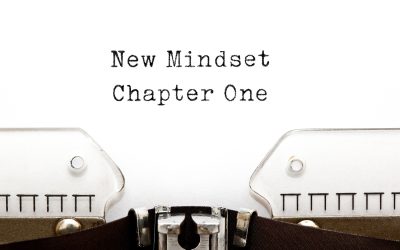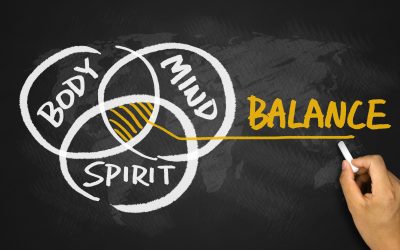Rapidfire Research on Meditation

MAKING THE CASE FOR THIS DEVASTATINGLY SIMPLE, TOTALLY ACHIEVABLE, MODERN YET ANCIENT MENTAL/HEART/NERVOUS SYSTEM HEALTH PRACTICE
Alright, so research is super boring to many of us in jobs without goggles and white lab coats… But what’s more important here is that it’s nice to know someone was willing to jot down some data about a few human guinea pigs willing to take the leap into meditation for mental health and heart health for the rest of us.
Spoiler Alert! Meditation offers a bonanza of health benefits, encompassing both mental and physical well-being – and including both structural and functional changes to certain brain regions.
IS THERE A SUTRA ABOUT RESEARCH?
Yep, more or less… The text of the Yoga sutras start by clarifying there are five activities of the mind – which are introduced in the Practice Blog here.
Sutra 1.7:
Clear perception is based on direct observation of the object, inference, and reference to reliable authorities.
Sutra, 1.7 is about clear perception, ‘right knowledge’. This is an important part of the ancient text on yoga as misperception (sutra 1.8) is the overarching cause of suffering when it comes to observing the fluctuations of the mind (big surprise!). So sutra 1.7 clarifies that clear perception can be affirmed through three different ways or lenses:
1. Direct Perception (Pratyakṣa): This refers to knowledge obtained through our direct experience or senses.
2. Inference (Anumana): This is knowledge derived from reasoning or deduction.
3. Testimony (Āgama): This is knowledge based on reliable sources, such as teachings or in this case credible research, from authoritative figures in the tradition.
The research information here presents clear perception or ‘right’ knowledge through the second and third lenses, serving as an encouraging motivation for each of us to gain our own clarity through the first lens.
And, by the way, sometimes clear perception can still cause suffering. Imagine the discovery that a loved one has died or a logistical reason you have to move away from your friends or breaking your wrist as a world pickle ball champion… This still presents the opportunity to practice perspective – practice the realization that change is just a necessary part of life and ground yourself in the present moment for a world of transformational possibilities that still lie ahead when you move on the with the practice of detachment (sutra 1.12).
WELCOME TO YOUR NEXT RABBIT HOLE
Below are a few ‘cut to the chase’ findings that just scratch the surface with a rapid-fire round of links. It might be enough to convince you to give it another go, because who doesn’t want to feel like a calm, collected yoga guru who can just sip kombucha and ignore ‘said perceived’ problems?
Stress Reduction:
Meditation is like hitting the ‘pause’ button on life, so you can stop freaking out about your boss, your kids and your Wi-Fi – in that order and before the automatic brew cycle on your coffee maker even starts. Think of the benefits of meditation as giving your brain a three day weekend – that extra day off really takes off the edge.
And don’t forget about our deep dive into Cortisol starting those dumpster fires in your body from the Practice Blog.
LINKS: Mayo Clinic, American Psychological Association, NCCIH
Anxiety Control:
Anxiety comes in all shapes and sizes and meditation is a one size fits all solution that can really help chip away at it – with practice, over time. Remember, anxiety is generated by patterns and habits of thinking, so meditation requires the same habit of unthinking or retraining your system with new brain activity. Make it a hearty meal plan alongside servings of exercise or breath work or talk therapy, and you’re good as gold!
LINKS: Healthline, NCIHH, Harvard Health, Frontiers in Psychology
Enhanced Emotional Health:
We all have those ‘less-desirable’ emotions, if you know what I mean. Meditation helps you to ‘uninvite’ those undesirables so that they never show up in the first place. Flexing that awareness muscle into your breath frequently will train your brain to work with your nervous system like a trained monkey.
You’ll find it’s like having a personal drama detection implant with a Zen setting, guiding you through life’s potholes and subsequent coffee spills with greater ease.
LINKS: Healthline, NCCIH, Frontiers in Neuroscience, PubMed
Increased Self-Awareness:
If you ever wonder, “Who am I? What am I doing with my life? Why am I eating a sandwich at 2AM?”—then meditation is your new personal assistant. It’ll help you stay on top of your inner appointments and clear out the fog for a distraction-free, collaborative meeting between your mind and your soul [a.k.a. heart, spirit].
Think of it as a therapy session without the bill. Okay, so therapy is good too… A meditation practice may at least help turn down the excess chatter in your mind so you can discern whether to go to yoga therapy or some other type of therapy.
LINKS: Healthline, ScienceDirect, SpringerLink
Improved Attention and Memory
Raise your hand if you lose your keys on a regular basis, spend hours on the same sentence in that weekly project update report, or forget why you walked into the kitchen.
Wait, why is everyone raising their hands again…? Oh, right. Meditation is just a set of push-ups for your brain workout, because the whole point of meditation is, well, practicing focus. Minding your gray matter matters on a regular basis!
LINKS: UC Davis Health, Mount Sinai Health System, PubMed, The Atlantic, Neuroscience News
Addiction Control:
Remember that awareness muscle we’ve talked about? Mindfulness meditation is a new habit worth forming when you approach it as just one present moment after another, flexing that awareness muscle over and over again, only without the barbells.
Before you know it, you’ll have neuroplasticity blossoms throughout your entire brain, reinforcing the focus to the chill sensation on the inside without the need for anything on the outside. Addiction is a big deal – and so is meditation as a co-pilot with a long list of other research-based treatment strategies.
LINKS: Healthline, Harvard Health, Recovery Research Institute, BioMed Central
Improved Sleep:
You ever stare at the ceiling at 3 AM, your brain going a thousand miles an hour? Meditation practices, most notably mindfulness and breathwork, help you turn off the chaotic hamster wheel of your mind. And then—BOOM—you actually fall asleep. Bye-bye insomnia.
Sticking to a mindfulness practice in the morning or during your daytime too is like a series of dog biscuits for your brain. Flexing that awareness muscle frequently will train your brain to work with your nervous system like a trained monkey. It helps you actually sleep like a baby, and without the zoo animal mobile. This research is on par with the effects of exercise and CBT (Cognitive Behavioral Therapy). The more consistently you practice, the more consistently you sleep.
LINKS: Harvard Health, ScienceDirect, AASM, JAMA Network
Supports Heart Health:
Yes, even you, Gen Z! Look up any statistic on leading causes of death and you’ll find heart disease and stroke take top honors within the top five. Chronic stress, generated in the mind as we know here, affects your blood pressure, and keeping it low (outside of any exercise spurts) goes a long way in keeping you in the better half of those statistics on heart disease and death.
Heart health is better managed through chronic stress reduction in your 20’s and 30s, than in a reactive state in your 60s. Meditation is a really handy start before you reach the brink of decoding which of your cholesterol numbers are moving in the right direction.
Keeping your heart healthy has a bit of Yin Yang strategy to it: on the one hand, lower blood pressure by lowering chronic stress is important for consistent health; while elevating your heart rate with exercise will roto-rooter your circulatory system with blood acting as a sort of natural ‘Drano’ keeping your arteries squeaky clean of plaque build-up. There goes yoga again, reminding us of the nature of balance everywhere.
So back to meditation and the beauty of this non-age-discriminatory workout – it’s portable, it doesn’t require any equipment or gym fees, it doesn’t even take a ton of time for a practice. Meditation and yoga act like two bodyguards sitting on your ticker, and turning away a whole myriad of shady, stress-inducing characters trying to get through those velvet ropes.
It’s not a one size fits all solution for everyone, your doctor will help discern its role — and so will some of this research here.
LINKS: Mayo Clinic John Hopkins Medicine, European Society of Cardiology, Harvard Health, American Heart Association Journals, BioMed Central, VA Research
OKAY, BUT HOW DOES MEDITATION REEEEEALLY WORK?
Feeling the effects for yourself is one thing, then understanding the alchemy beyond the brain at a deeper conscious level is a whole new ballgame and we’re barely in the first inning.
If you want to take a deeper dive into more emerging research – dedicated to the more ‘quantum’, if you will, workings of meditation, then this is the rabbit hole for you. Matthew Sacchet, PhD, at Harvard University is a white lab coat guy going beyond the pathologies of the body and coalescing ancient wisdom with a modern science approach.
Checkout his approach with an overview in these places – or just google his name if you’re able to decode the more sciencey PDFs:
Harvard Meditation Research Program
Mass General Research Interview
The Mind-Bending Science of Advanced Meditation: 10% Happier Podcast with journalist Dan Harris
BOTTOM LINE: GRAY MATTER MATTERS
Meditation and yoga helps you mind your matters in various ways that gray matter matters to you! It aint a miracle pill, but neither is binge watching White Lotus after a stressful day, so why not give this a try too and see.
Practicing Perspective: A Bedtime Story
Mind says “Go this way, hurry up!”
“You can’t.
You don’t know.
You’re not that. This is the truth.” Mind chatters.
What is Practicing Perspective?
It’s the white foamy stuff that can snuff out the dumpster fire in your body set by cortisol.
Perspectives are not only seen with the eye, they are also held in the mind; they’re often even deeply rooted beliefs. So practicing perspective is an activity of…
What is meditation?
Making The Case For This Devastatingly Simple, Totally Achievable, Modern Yet Ancient Mental Health Practice You Might Want To Rethink.
Meditation is a tool for the mind, just as a barbell is a tool for the muscle or a treadmill is a tool for cardiac training.
Cognitive Behavioral Therapy and the Yoga Sutras
As we look closely at one of the more common methods (practices) of psychology being Cognitive Behavioral Therapy (CBT), we can find a significant amount of overlap with Yoga.



